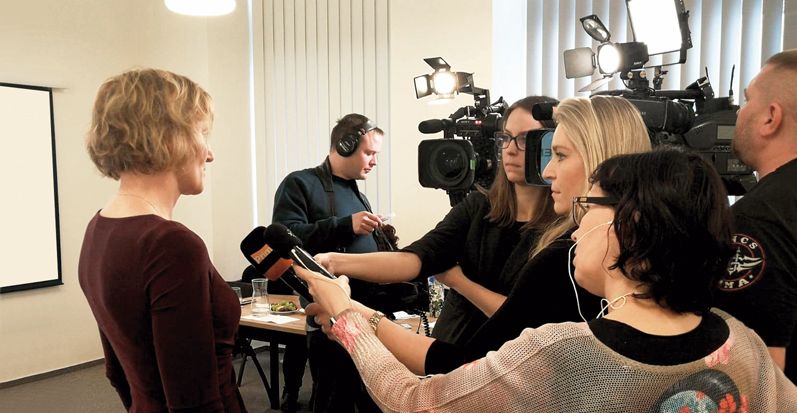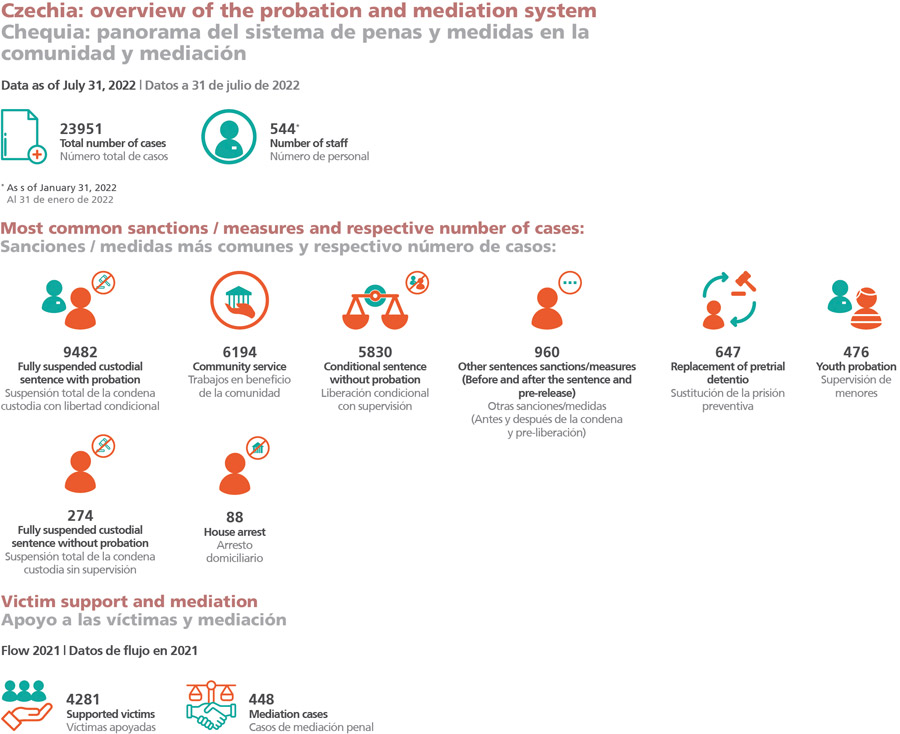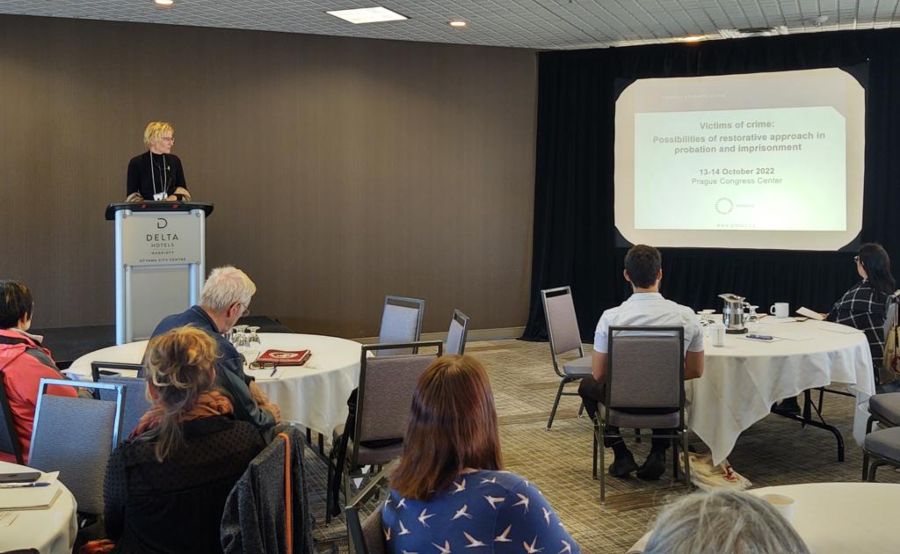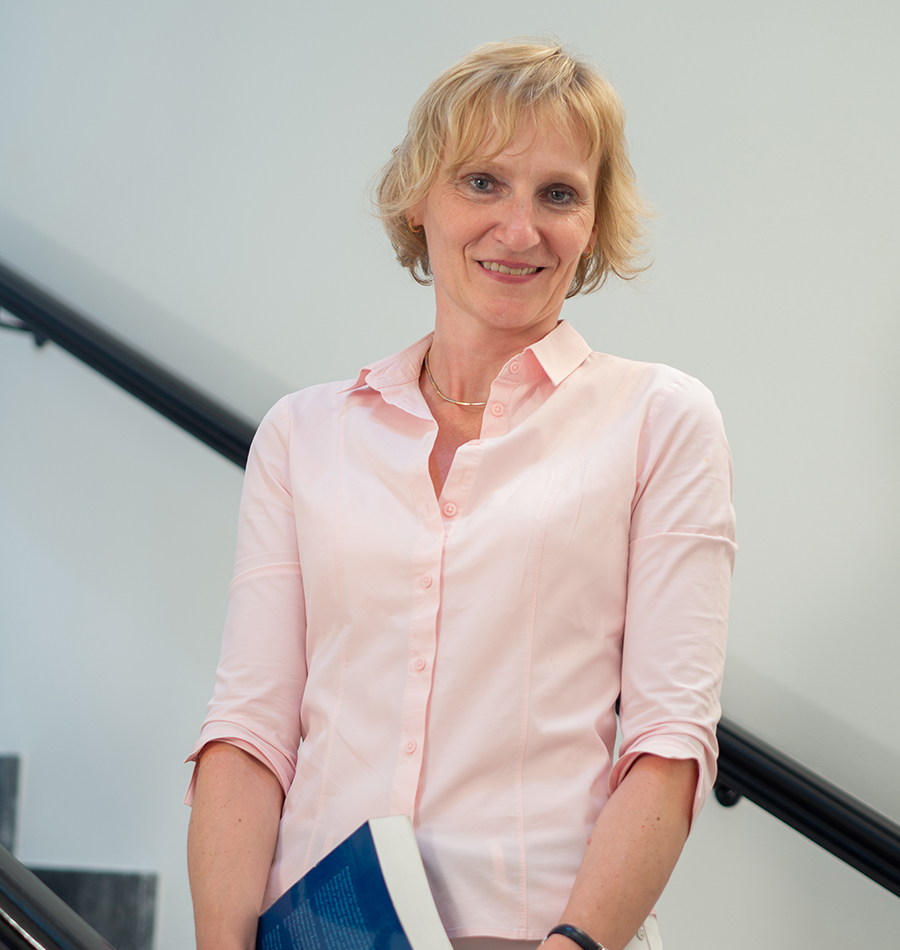Interview
Andrea Matoušková
Director-General of the Czech Probation and Mediation Service
The Czech Probation and Mediation Service provides a balanced combination of social work and criminal law, with a multi-disciplinary approach to the criminal justice system.
The Service has two other primary guiding goals beyond probation: it actively promotes out-of-court mediation between victims and offenders when both parties consent to this approach and offers support for victims of crime.
Dr. Andrea Matoušková has been a vital part of the Service since its foundation over 20 years ago, taking on the role of Director-General in 2016. In this interview, she shares the philosophy behind the Service, the challenges and the successes achieved over the years.
What is the Czech Probation and Mediation Service’s mandate? And how do probation mediation and victim support intertwine and complement each other?
AM: The Probation and Mediation Service began operating in January 2001 as an independent organisation. However, its activities had been taking place in practice since the mid-1990s.
It was a time of major change to criminal legislation in our country, and there was a need to change the system of the execution of sentences. The changes also involved the prison system, as it was necessary to create a system implementing new alternative sanctions and measures. As a result, the Probation and Mediation Service came into existence.
We could focus on creating something innovative, so we opted for restorative justice as our theoretical framework. At that time, we were heavily influenced by victim-offender mediation and programmes enabling victims to participate in the process of dealing with the consequences of crime . We took inspiration from countries such as Austria, Germany, the Netherlands, Canada and the UK.
This initial inspiration has meant that the newly-established Service has always considered the offender’s management and associated risks, the needs of the victims and the interests of the community affected by the crime.
Ever since, in fact, this is how we have worked in our Service Centres, in all districts where courts are located. At our Centres, we have probation officers and assistants who prepare pre-assessment reports for the courts detailing possible alternative sanctions. Our staff supervise offenders on probation and parole. Officers are trained to work with and involve the victims of crime in the cases they handle.
In a practical example: a person convicted of breaking into cars is sentenced to 200 hours of community service by the court. Our probation officer collects all the necessary information and negotiates the requirements of the sanction.
The probation officer then assesses the offender’s attitude towards the damage they have causes, maps out the possibilities of compensation, and evaluates his readiness to engage in dialogue with the victims of his crime.
The probation officer’s job is also to contact victims to discuss their needs and compensation for damages and probe their interest in mediation.
From our experience, collecting all the information from both offenders and victims is a turning point. Probation officers have the data they need, understand the broader context of the crime committed, and are familiar with the viewpoint of all involved parties. Although the offender and the victim never meet face-to-face, our probation officers can still help them understand each other and facilitate the whole process while observing the principles of impartiality and confidentiality.
More than twenty years of experience have shown that this concept works well. Research carried out by the Institute of Criminology and Social Prevention in 2010 showed that 9 out of 10 victims of crime were satisfied with the results of the mediation process. Furthermore, the report found that an agreement on compensation for damages was successful in 87% of cases. With regard to the mending of relationships, 82% of victims received an apology from the offenders, and two-thirds of the victims felt that the offenders were honest with them during the mediation process.
Our Service can begin its activities at any stage of the criminal proceedings. Mediation is carried out more often at the pretrial stage or before the final court decision. However, most of the offenders we deal with are on probation – 60% of our work is carrying out the court’s decisions; our work covers adults, adolescents and children.
Our Service has always considered the offender's management and associated risks, the needs of the victims and the interests of the community affected by the crime.

What are the main challenges facing the Czech Probation and
Mediation Service? And which significant accomplishments would
you highlight?
AM: I am proud of how we keep developing and growing the organisation. We have not changed the principles of our work and theoretical framework, but we are constantly revising our methodologies and working procedures.
We started off with 100 employees; currently, we are closing on 600 staff members. We have established excellent working relationships with our partners in the criminal justice system, both in state and nongovernmental organisations. We continue to support the development of restorative justice and insist on the importance of multi-agency cooperation.
We have achieved a few systemic changes; for example, we introduced five brand-new Programme Centres in the past two years. To make the system function optimally, we need eight such Centres, and I believe we are nearly there. These are facilities where we provide four types of programmes for offenders: reducing violent behaviour; leading offenders to take responsibility for the effects of their crimes (on the victims); a programme aimed at offenders convicted of traffic offences; and a specific one for juvenile offenders.
In cooperation with NGOs and other organisations, we have established a system of accessible counselling offices for victims. Through the work of Victim Support Teams and Youth Offending Teams, we have seen the effectiveness of interagency cooperation at a local level.
We have learned that by establishing teams in which all key stakeholders are involved, including the representatives of municipalities, many problems become more manageable. Some improvements need no financial investment at all.
Sometimes it is just about negotiating and setting up closer cooperation, motivating all actors involved to establish better mutual communication and cooperation.
For the future, the biggest challenge will be to find a new electronic monitoring supplier.
We have learned that by establishing teams in which all key stakeholders are involved, including the representatives of municipalities, many problems become more manageable. Some improvements need no financial investment at all.

For our sentences to achieve the desired effect on offenders, causing them to end their criminal activities, we need to support offenders in effecting positive changes in their lives.
JT: According to the latest Council of Europe Annual Penal Statistics (SPACE I Report, 2021), Czechia has the lowest rate of inmates not serving a final sentence (remand/pretrial) in Europe.
To what extent and in what ways does the Service promote noncustodial alternative sentences? And does the Service play a role in reducing the application of pretrial detention?
AM: Currently, increasing use of alternative sanctions and measures, whenever possible, is a clear trend across Europe. We are being led to apply alternative sanctions as broadly as possible, not only for economic reasons, as imprisonment is the most expensive type of sentence, but also by the latest findings in criminology, which describe the process of desistance.
For our sentences to achieve the desired effect on offenders, causing them to end their criminal activities, we need to support offenders in effecting positive changes in their lives. This has been evidenced by research.
The Methodological Procedures of our Service describe various ways of supporting desistance and creating a constructive relationship with offenders under our supervision.
We must nurture well-functioning cooperation amongst all criminal justice partners. Therefore, our Service has supported the application of diversion from prosecution and alternative sanctions and measures as the effective tools of a modern criminal justice policy. For years, we have strived to establish the foundations for prosecutors and judges to apply alternative sanctions and measures in practice as broadly as possible.
At the pretrial stage, we create the conditions and carry out the enforcement of probation supervision in cases where the court has replaced custody with this measure. We also pay special attention to juvenile offenders, ensuring the preparation and execution of criminal and educational measures.

How has international cooperation contributed to the Czech Probation and Mediation Service?
AM: Our Service was developed through the experiences gained from partners abroad, and it has continued to apply their best practices up to today.
We consider regular contact with members of the Confederation of European Probation (CEP) to be essential and a valuable resource. We are proud to be involved in projects supporting the establishment of new probation services and we are pleased with our cooperation with countries as Croatia, Lithuania, Slovenia, and Armenia.
Currently, we are part of the European project, “Restorative Justice: Strategies for Change”. We are supported by our partner organisations – the CEP and the European Forum for Restorative Justice – and we are actively involved in various expert groups established by the Council of Europe.
Several new elements in our work have been the result of successfully implemented EU-funded projects. And recently, we could update our methodologies and procedures for working with juveniles, and those related to parole, thanks to the Norway Grants.
The Programme Centres I mentioned earlier, and the opening of our first halfway house have been achieved thanks to extremely inspiring cooperation with colleagues from Norway, through a project financed by the Norway Grants.

What can you tell us about the halfway house project?
AM: It’s a first-time experience for the Czech Republic; it will open in November 2022 in Písek, a small town in South Bohemia.
This facility will contribute to filling the gap for conditionally released offenders (parolees). Up to sixteen offenders (males) will stay there for the first six months after their release from prison.
The aim is to support their successful reintegration and foster desistance.
In this facility, clients will receive advice, support and practical help from our professional staff, but always guiding them towards independence.
By independence I mean finding and keeping a job, having the finances for basic living expenses, recovering relations with their loved ones, treating their addictions, or solving other living and social problems.
At the same time, we want to deconstruct stereotypes and prejudices amongst the public towards people with a criminal record.
JT: Your “Strategy for Probation and Mediation until 2025” has an inspirational motto: “We are unable to eliminate criminality. Nevertheless, we seek to initiate new stories in the lives of offenders, victims, and all other people affected by crime. Our work aims to ensure these are success stories characterised by positive changes.”
How is this motto guiding the future of Probation and Mediation in
Czechia?
AM: Our focus is working with people. Our staff meet the clients at a point in their lives when they are facing a very difficult situation as a consequence of crime. We encounter a lot of emotions, pain and loss.
Our aim is always to discover the story from both the victims’ and offenders’ perspectives, as well as from the community’s, and thus, to help them towards a mutual understanding of what has happened and, more importantly, how the harm can be redressed. We focus on providing people with help and support. We try to help them overcome the loss and pain by creating brand new stories that are primarily about positive changes in their lives.
Andrea Matoušková
Director-General of the Czech Probation and Mediation Service
Andrea Matoušková, PhD, was one of the first probation officers in her country. With a degree in Social Work, she participated in the introduction of Probation and Mediation into Czech practice and, later, in the preparation for the creation of the Service that she currently directs. She is also a researcher and university lecturer, an author of several publications, and is involved in projects dealing with the development of Probation and Mediation across Europe.


